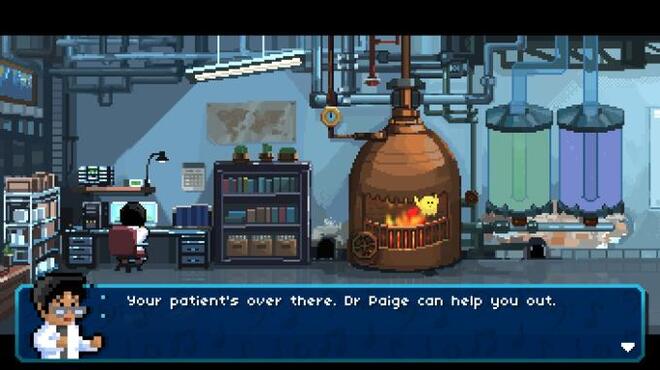
(1) (most frequent) idiopathic right ventricular outflow tract PVCs/nsVT here the PVC morphology shows a left bundle branch block pattern (in lead V1) with inferior frontal plane axis (positive QRS in leads 2, 3, aVF).Ģ) (less common) idiopathic left ventricular septal PVCs (not infrequently associated with nonsustained or sustained ventricular tachycardia) here the PVC morphology shows a right bundle branch block pattern (in lead V1) - with a mostly superior axis (negative QRS in leads 2, 3, aVF). PVCs in patients without structural heart disease, here typically two syndromes are to be considered (ref 3): A more subtle form of cardiomyopathy, arrhythmogenic right ventricular dysplasia, which typically presents with a left bundle branch PVC pattern, also needs to be considered, and clinical clues to this disorder are the presence of inverted T-waves in leads V1 through V3, the presence of low amplitude potentials, delayed slurred QRS in leads V1 and V2, and the presence of right ventricular wall motion abnormalities on a carefully performed echocardiogram (ref 2). Often the PVCs show a right bundle branch block (originating from the left ventricle) with variable axis pattern.

PVCs in patients with structural heart disease such as LVH, cardiomyopathy, and congestive heart failure, prior myocardial infarction, etc. įrom a clinical perspective it is useful to divide patients with frequent PVCs into those with and those without structural heart disease: Additional diagnostic tests (Nuclear perfusion study, cardiac catheterization, cardiac MRI, etc) should be based on the individual clinical scenario. Once PVCs are documented it is often useful to proceed with an echocardiogram to evaluate for underlying structural heart disease and exercise stress testing to assess the impact of physical activity on PVCs. There have been some reports of frequent PVCs resulting in a “tachycardia induced” cardiomyopathy, which can be reversed with successful elimination of PVCs by catheter ablation (ref 1).Įvent monitoring is highly effective in correlating a patient's symptoms to presence or absence of arrhythmias, and such correlation should form the basis for invasive therapies. Patients with a high frequency of PVC (> 20-40% of all beats) may require more aggressive therapy independent of symptoms. Holter monitoring can help correlate PVCs to symptoms and is a suitable tool to quantify PVC frequency (which may have an important impact with regard to clinical management). LVH, Q-waves in patients with prior myocardial infarction). In addition, the 12-lead EKG can be used to assess whether PVCs are monomorphic/monotopic (suggesting a single site of arrhythmia origin) and whether one should look for possible structural heart disease (i.e. The 12-lead EKG is very useful in identifying the PVC morphology, as certain clinical syndromes exhibit very characteristic PVC morphologies (see below). While patients may be asymptomatic, typically these PVCs cause sensations of skipping, heart pounding, and possibly chest pain, shortness of breath or dizziness. Premature ventricular complexes, or PVCs, are a common clinical problem. Many, many hours have been spent making the engine accurate enough to support a margin of error of a few hundredths of a second.Clinical Approach to Patients with Frequent PVCs "a rad Rhythm Paradise-esque game." - Jeffrey Matulef, Eurogamer (.) Rhythm is in everything, and I'm glad the developers found it in medicine." - John Polson, "The base mechanic and premise of Rhythm Doctor are gold for me. if those don’t mean much to you, don’t worry - it’s designed to make you learn rhythm theory without even realising it. But every level has a twist on that concept: polyrhythms, offbeats, hemiolas, irregular time signatures. The core mechanic is simple: slam your spacebar on the 7th beat to save patients in a hospital. Rhythm Doctor is a one-button rhythm game that aims to invisibly teach complex music and rhythm theory.

Rhythm Doctor is a title featured at IndieCade 2017.


 0 kommentar(er)
0 kommentar(er)
